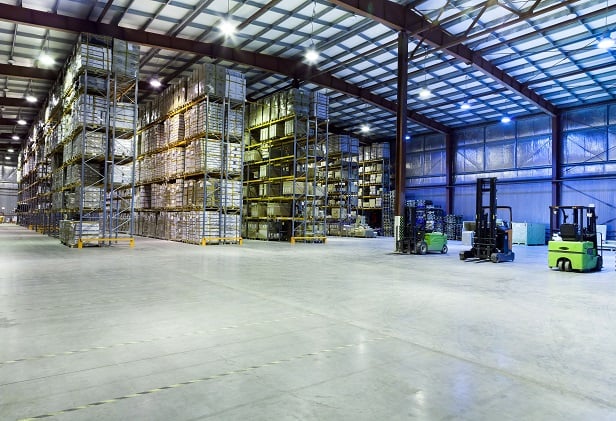"This creation of a new type of hybrid flex building that combines office and industrial features can also be modified to suit a tenant's needs," he continues. "Companies have been turning to this kind of space as one solution."
The trend also reflects New Jersey's shift from traditional manufacturing to warehousing and distribution as the key driver of its industrial sector. And because well-built industrial space is only a step below flex or class C office space, industrial property developers have been successfully hedging their bets as to which way the market will go.
The result is that "leasing activity remains very strong, new development is being absorbed and build-to-suit facilities are proliferating in all areas of the market," says Tiger, who's based in First Industrial's New Jersey office in Montville. "Even though several million sf of new space has been added to the market, most of it has already been absorbed,"
Indeed, the trend toward hybrid flex space is likely to factor into the site-seeking frenzy that is occurring in the wake of the World Trade Center disaster. Some observers feel that such existing space may provide one solution for companies looking to set up back offices and related operations displaced by the terrorist attack last week. As reported by GlobeSt.com, Hartz Mountain Industries has upwards of 750,000 sf of industrial space in and around the Meadowlands submarket and is said to be having serious conversations with potential tenants who would use it just for that purpose.
In any case, Tiger points to a couple of other trends. In the first, "while the headlines are dominated by huge industrial deals, the real story is the tremendous demand for industrial space among smaller users. One of our strategies has been to meet tenant size requests as small as 5,000 sf, and as large as 500,000 sf."
As far as specific markets, "with space availability extremely tight, new pockets are opening up and becoming industrial 'hot spots'." Specifically, he mentions "excellent land opportunities in parts of Morris, Middlesex, Somerset and Mercer counties.
"We remain very optimistic, because New Jersey's industrial markets aren't dependent on one industry," Tiger concludes. "Such industries as pharmaceuticals, biotech, high-tech in general, automobiles, transportation and e-commerce are all fueling demand for industrial space."
Want to continue reading?
Become a Free ALM Digital Reader.
Once you are an ALM Digital Member, you’ll receive:
- Breaking commercial real estate news and analysis, on-site and via our newsletters and custom alerts
- Educational webcasts, white papers, and ebooks from industry thought leaders
- Critical coverage of the property casualty insurance and financial advisory markets on our other ALM sites, PropertyCasualty360 and ThinkAdvisor
Already have an account? Sign In Now
*May exclude premium content© 2024 ALM Global, LLC, All Rights Reserved. Request academic re-use from www.copyright.com. All other uses, submit a request to [email protected]. For more information visit Asset & Logo Licensing.







